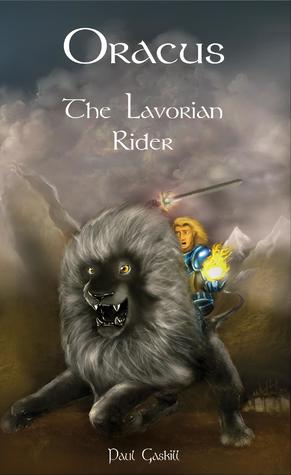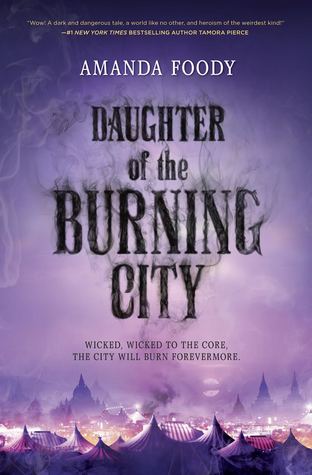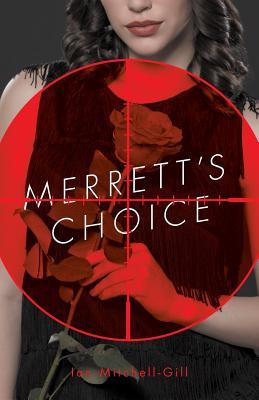by Paul Gaskill
Publication Date: August 4th 2014
Publisher: Paul's
Books Ltd
Find This Book: Oracus: The Lavorian Rider
Rating: 4/5
For readers who love Fantasy lands, this is a book I’d recommend to you. The beginning reminded me strongly of Eragon (which I love), to the point were I was describing the first couple of chapters to my co-worker and they thought I was talking about Eragon, BUT then the book really came into its own. Unlike many fantasy lands, there are no dwarves or elves. Instead, the Oracus Trilogy has all brand-new races (and you can even see drawings at his website HERE). While the world-building is present, the new races can be a little confusing and I would definitely recommend browsing the images while starting. For those who love maps- ME, I love book maps- you can also find a map of Pharia and some more lore about the Lavorian Riders at the link mentioned above!
The book is about a
Kingdom ruled by Jowra. I’m not too sure if Pharia is the continent or the
Kingdom (or both?) because you are thrown into this world with the main
character. You learn everything as Oracus learns it, so I guess he hasn’t
thought to ask yet. It’s tough asking the world-building questions when you’re
busy being thrown into being bonded with a magical creature and being trained
to save the kingdom from Jowra’s evils. It was really cool learning through the
characters’ instead of getting a huge inner monologue from the MC to get the
reader up to date.
Ok so there’s a
kingdom. Check. There’s an evil king to defeat. Check. Now explain the magical
creatures Nikki! That's where it's complicated and a bit contradictory. Ok so
there are Lavorians, creatures born out of Obulars (basically eggs from what I
can tell) and they bond with the first being to touch them (this seems to be
regardless of race with is pretty cool). They themselves seem to be any animal,
but covered in metal that cannot be removed or pierced by weapons, they never
stop growing, and no two are the same. I’m not quite sure how that works
because there seems to be a bunch of Lavorians and they’ve existed for a long
time so there’s no way there haven’t been repeats. So maybe just no two species
that are the same are living at the same time? Again, the lore is a little
contradictory in the first book, but I’m assuming the reader learns more in the
sequels as Oracus learns more!
Being bonded comes
with a bunch of cool abilities like mind links, have a cool metal partner, and
gaining a rider power (no two are alike). Additionally, the Lavorian and its
rider will never die of old age. They can be killed, but not by natural causes.
Again this is where the lore gets fuzzy for me: should a mortal kill a rider,
the mortal will then possess the rider’s power, the rider's Lavorian will lose
its’ metal coating as punishment for failing its' partner, and the Lavorian now
belongs to the mortal. It seems like only the evil king (Jowra) can kill other
riders and still repossess the killed rider’s powers but honestly I'm not too
sure. It was also fuzzy as to if he can use other rider’s powers in his
vicinity his power. Or of his power is only to claim the powers of riders he
has killed.
Our MC Oracus is one
such rider who bonds to a lion Lavorian; discovers the world outside his small
farming village; actually has a good, nontoxic relationship with people; spends
months upon months training to help the rebellion; has both positive and
negative experiences with others finding out who he is; and gets a taste of
battle all before the end of book one.
Is the book perfect?
No, I clearly have some questions about Lore, but I hope that gets clarified
for me in the future. There were only three grammatical errors that I noticed,
but that did not hinder my reading experience in the slightest (I'm just used
to editing as I read and notice these things). The plot is interesting,
and (after the first couple chapters) surprisingly unexpected- the book was
hard to put down after I started getting into it! I grew fond of Oracus and
Bandor, and found their relationship sweet and amusing. I was even pleasantly
surprised with how this book’s ending paused the story line. Additionally, I'm
happy to report that were were characters that got screen time and that got to
speak that were *not* teenagers for a change. And they weren’t the crazy old
people too stuck in their ways to see the necessary change trope either. They
were realistic middle-aged characters- thank goodness.
I currently have a
large queue of to-read books, but I am definitely adding the rest of the
trilogy to my list!
Meet The Author
 |
| Oracus' Author: Paul Gaskill |
Bio
"Paul Gaskill is a fantasy
author from the UK. He was born in 1991 and was educated at John Port School in
Derby, where he took a liking to Mathematics. Fast forward a number of years
and Paul studied Mathematics at University and then became a Financial Adviser,
still in the city of Derby. Despite the career in numbers, Paul’s secret love was letters, and his novels were created
during the evenings when everything finance during the daytime had been
forgotten."
Q&A
Nikki: What has your writing life been like until now?
Paul: Believe it or not, I studied Mathematics at University. And it was DURING my course that I started writing Oracus. I learned about numbers, and I wrote words in my spare time.
I became a Financial Adviser, and I continued to write words in my spare time.
Now, I write words. Maybe I should have realised sooner that writing novels was what I was made for!
Nikki: Is there any pre-existing mythology incorporated in your novel?
Paul: None whatsoever. Everything I write is completely original. Certain authors and their work have obviously influenced how and what I write, but I’m talking about people and places and creatures and races and cultures and politics and everything else. Whatever I create is the first of its kind. J.R.R.Tolkien’s Lord of the Rings created a foundation for Dwarves and Elves and Men, whilst J.K.Rowling’s Harry Potter is full of cleverly adapted versions of creatures that we already know. But you’ve never before heard of an Ulatori, or a Sashtram, or a Hazin’al before. Everything is fresh (except Humans, I guess). Check out my website if you want to know more; my illustrator has brought these races to life!
Returning to the original question: I have nothing but respect for authors who research mythology and other legendary elements in huge detail and incorporate them, without flaws, into their work. But I excel at doing things in a slightly different way.
Nikki: Where did you get the idea of Lavorians from?
Paul: Believe it or not, I studied Mathematics at University. And it was DURING my course that I started writing Oracus. I learned about numbers, and I wrote words in my spare time.
I became a Financial Adviser, and I continued to write words in my spare time.
Now, I write words. Maybe I should have realised sooner that writing novels was what I was made for!
Nikki: Is there any pre-existing mythology incorporated in your novel?
Paul: None whatsoever. Everything I write is completely original. Certain authors and their work have obviously influenced how and what I write, but I’m talking about people and places and creatures and races and cultures and politics and everything else. Whatever I create is the first of its kind. J.R.R.Tolkien’s Lord of the Rings created a foundation for Dwarves and Elves and Men, whilst J.K.Rowling’s Harry Potter is full of cleverly adapted versions of creatures that we already know. But you’ve never before heard of an Ulatori, or a Sashtram, or a Hazin’al before. Everything is fresh (except Humans, I guess). Check out my website if you want to know more; my illustrator has brought these races to life!
Returning to the original question: I have nothing but respect for authors who research mythology and other legendary elements in huge detail and incorporate them, without flaws, into their work. But I excel at doing things in a slightly different way.
Nikki: Where did you get the idea of Lavorians from?
Paul: Lavorians are what started the Oracus Trilogy. They were the very first idea that began the whole process. I didn’t wake up one day and say “Hey, I’m gonna write a book!” I thought, “Ooh, these creatures have promise!”
I’ve always been an animal lover and I’ve always been a fantasy reader. Lavorians definitely bring the two together. Who wouldn’t like to have a pet with incredible powers who answers to them, and to them alone?
*An interesting extra point: a Lavorian was originally called a Parnorius. Unfortunately, its plural quickly became a problem. Should it be Parnoriuses or Parnorii? My dilemma persisted for several chapters until I changed the race’s name to Lavorian (and I breathed a sigh of relief).
Nikki: How was your experience with editing and getting a book cover as an Indie author?
Paul: Since I began writing I’ve had a close relationship with my illustrator who lives in the same city. A fantasy series of books isn’t the easiest of projects to supply for, so I’ve been fortunate to have a magician on my side. Every suggestion I have thrown at him has been somehow created in a way that was beyond even what I’d imagined. It’s something I will never take for granted.
As for editing, I’m lucky in a way that I never realised before I began writing. My family members aren't the kind of people to give plaudits where undeserved. After I’d edited and improved my initial draft, family scrutinised it and made it clear that adjustments could be made. Oracus underwent a face-lift (as well as a few other bits of surgery) and came out as the polished edition that it is today. Critics will say that without having sent the series to a professional editor, it will never be as good as it could have been. I cannot judge that, so I guess the answer is solely in the reading.
Nikki: Are you currently working on anything?
Paul: Yes, I’m pleased to say that I am. During the writing of Oracus, I had composed an idea for a new project. As soon as Oracus was completed, I began to put that idea into writing.
‘The Eleven’ will be an adult fantasy novel – a step away from the young-adult work that I have already had published. Originally, I had expected the project to be a series. Now, though, I’m considering publishing it as a solo epic novel. I hope this statement doesn’t set the bar of expectation too high, but ‘The Eleven’ will be phenomenal.
You can catch up with Paul Gaskill at the links below!
Goodreads | Amazon | Twitter | Instagram | Author Website |







